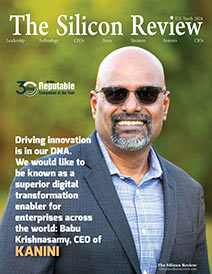>>
Technology>>
It service>>
Google’s new “Smart Reply�...Google’s new “Smart Reply”; your new e-mail secretary
The Silicon Review
06 November, 2015
Some believe that email is out dated and dying, but by implementing advances from its machine learning and AI teams, Google has been using Inbox its Gmail-based mobile email client as a way to raise the bar on how to improve the experience and make it once again into a productive place to communicate with people. Today, the company is taking the wraps off its latest feature: Smart Reply, a way for Inbox to craft automatic responses for you. The Alphabet-subsidiary said on Tuesday that its Inbox email service is getting a free tool named Smart Reply, which uses artificial intelligence to scan the contents of messages, pick three of a possible 20,000 common responses and suggest them to you.
For example, if someone asks about your vacation plans, and whether you can send them, Smart Reply will offer three pre-written responses, like “no plans yet,” “I just sent them to you,” or “I’m working on
them”. Google said. “Smart Reply” uses similar AI technology to that recently rolled out in the Mountain View, California-based company’s main Google search engine, via a system named “RankBrain”.
Smart Reply, like RankBrain, uses an approach to convert the words and sentences in the email into mathematical entities called vectors that let it understand and reason about the content of the message. It then figures out what some appropriate responses might be. This system is emblematic of the way large technology companies are trying to use AI to do easy to automate tasks that people otherwise do manually. The app also “learns” as you use it. So, if you never choose, “Yes, please send me more information!” when replying to a particular person who is pitching you a suggestion for something in an email, it’s unlikely to keep appearing as an option when that person writes again and again.
The bet is that a consumer will be more likely to use a company’s particular software if they know they can accomplish tasks in a shorter amount of time. Google has been one of the biggest corporate sponsors of AI, and has invested heavily in it for videos, speech, translation and search. These features have already been rolled out in personal-assistant products such as Apple’s Siri, Microsoft’s Cortana, and Google’s own Google now.
This is partly a practical move on the part of Google’s developers, the more crowded our phones get with apps, the less likely we are to open the ones that are difficult to use. But it’s also a sign of how it’s likely all apps will evolve over time.









